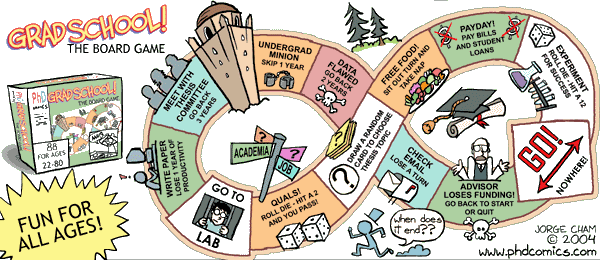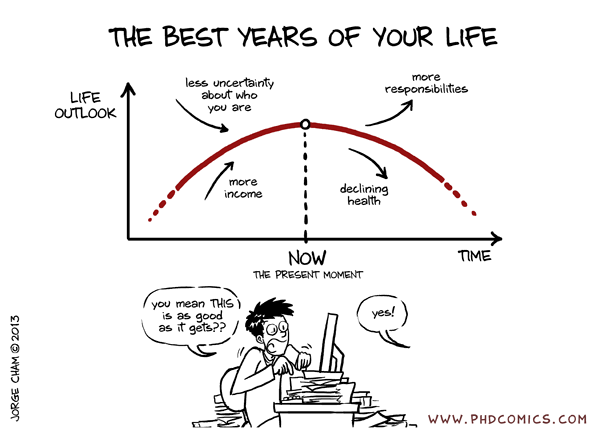Blog post
What You Need to Know Before Starting Grad School

Many of you will be starting a Master’s or a PhD at Concordia this semester. Since we’re sure the start of September has some of you panicking at the thought of beginning your graduate studies, we’ve scoured the web for advice from those who have paved the way for you. Here are some patterns of thought which emerge in those pieces.
Grad school will be the best time and/or worst time of your life
That may sound antithetical, but you'd be hard-pressed to find a graduate student, past or present, who disagrees with this point. Historian Andrew Pegoda sums it up when he writes: “Graduate school is an exercise in self-torture, but you will love it,” in his article on the things he wishes he knew before starting grad school.

You will live on a shoestring budget
Hopefully this is less true for students in Canada than it is in the notoriously pricey United States higher education system. Still, as Pegoda writes, “You will either have very little money or lots of debt.” But even if you don’t have to go into debt to finance your studies, Lifehacker recommends embracing what it calls “the 'Poor Grad Student' stereotype,” even if it doesn’t apply to you. Your bank account will thank you.
“Be very aware that good financial planning will be helpful," agrees Dr. 27, a structural biologist who runs the blog "27 and a PhD". Now may be a good time to make an appointment with your financial advisor.

Stop thinking student, start thinking researcher
Psychology Today’s piece on grad school truths focuses on making the switch between the “student” and the “professional” mentality. You’re in grad school to become an independent researcher, not to have good grades, Psych Today says. It also recommends having multiple manuscript projects underway - instead of just focusing on your thesis or dissertation.
“Graduate school is the kindergarden of scientists. You learn again to read, write and interact with others.”
What Next Scientist is getting at here is that you’ll have to approach reading, writing and networking differently than before grad school. Part of that is due to lack of time (hence the need to develop efficient reading and writing techniques - check out our Read, Write, and Present workshop series for those). Graduate studies are also a perfect opportunity to widen the range of your network in your chosen field. Expounding on that last point, Lifehacker recommends “doing everything” - from extracurriculars, to volunteering, and attending events - as an organic way of growing that network.
Do hold on to (at least some of) your sanity
If that last suggestion seems a bit overwhelming, Dr. 27 makes the excellent point that “It’s perfectly OK to seek counselling and/or psychological help to learn tools to keep some of your sanity.” At Concordia, you can make an appointment with Counselling and Development to acquire some of those tools. You could also check GradProSkills' page for upcoming workshops in stress management and balancing life as a graduate student.
If you’re hungry for more resources, the University of Calgary has a page dedicated to starting graduate school.
We wish you all an auspicious start to your semester. Good luck!

